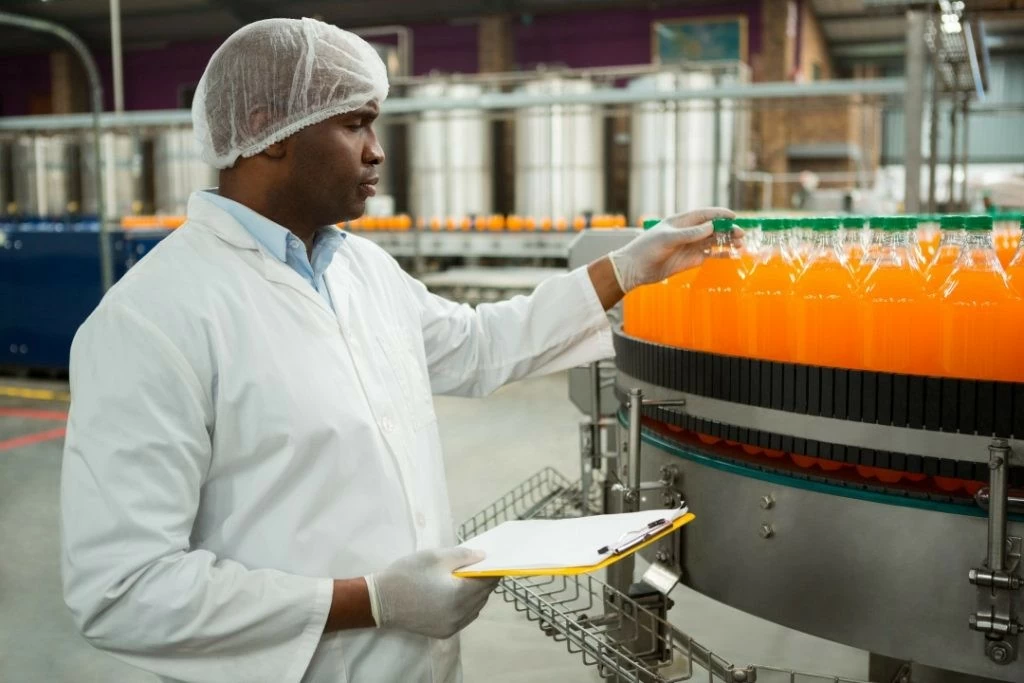
Halal certification: More effective, transparent, and inclusive with modern technology
Latest
 |
| Halal certification is a process that ensures products and services comply with Islamic dietary laws. (Source: halalfoundation) |
Halal certification is becoming increasingly important in the global food and beverage industry. It is not only a religious requirement for Muslims but also a standard of quality and hygiene which many non-Muslims trust. As the demand for Halal products continues to rise, the industry is witnessing a wave of innovation and progress aimed at making the certification process more efficient, transparent, and comprehensive. In this article, we explore the future of Halal certification, focusing on the key innovations and advancements which are set to shape the industry.
Halal certification is a process that ensures products and services comply with Islamic dietary laws. This certification is crucial for the Muslim population, which is projected to reach 2.2 billion by 2030.
The Halal market is not limited to food and beverages; it extends to pharmaceuticals, cosmetics, logistics, and even tourism. The global Halal market is estimated to be worth trillions of dollars, highlighting the importance of a reliable and efficient Halal certification processes.
Innovation in Halal certification
Blockchain Technology
One of the most significant advancements in Halal certification is the adoption of blockchain technology. Blockchain provides a decentralized and tamper-proof system for tracking and verifying Halal products. Every step of the supply chain, from sourcing raw materials to the final product, can be recorded on the blockchain, ensuring transparency and traceability. This technology can help eliminate fraud and build consumer trust by providing verifiable information about Halal certification.
Artificial Intelligence and Machine Learning
Artificial Intelligence (AI) and Machine Learning (ML) are transforming various industries, and Halal certification is no exception. AI and ML can streamline the certification process by automating repetitive tasks, analyzing vast amounts of data, and identifying patterns that human inspectors might miss.
For example, AI-powered image recognition systems can be used to inspect slaughterhouses, ensuring strict compliance with Halal standards.
Internet of Things (IoT)
The Internet of Things (IoT) is another technological advancement that holds great promise for the Halal certification industry. IoT devices can be used to monitor and control various aspects of the production process, ensuring compliance with Halal standards in real time.
For instance, IoT sensors can track temperature and humidity levels in food storage facilities, ensuring that conditions meet Halal requirements.
Mobile Applications
Mobile applications are making Halal certification more accessible and convenient for both consumers and businesses. These apps can provide instant access to Halal certification databases, allowing consumers to verify a product's Halal status simply by scanning a barcode.
For businesses, mobile applications can simplify the process of applying for Halal certification, reducing paperwork and processing time.
Advancements in Halal certification standards
Global Harmonization of Standards
One of the key challenges in Halal certification has been the lack of uniformity in standards across different countries. To address this issue, efforts are being made to harmonize Halal certification standards globally.
Organizations like the International Halal Accreditation Forum (IHAF) and the Standards and Metrology Institute for Islamic Countries (SMIIC) are working towards creating a unified set of standards that can be recognized worldwide. This global harmonization will simplify the certification process and facilitate international trade in Halal products.
Inclusion of New Product Categories
As the Halal market expands, there is a growing need to include new product categories in Halal certification. Beyond food and beverages, there is increasing demand for Halal-certified pharmaceuticals, cosmetics, and personal care products. The certification bodies are evolving to accommodate these new categories, ensuring that Halal standards are maintained across a broader range of products.
Focus on Sustainability and Ethical Practices
Modern consumers are becoming more conscious of sustainability and ethical practices. The future of Halal certification will likely to see a stronger emphasis on these aspects.
Halal certification bodies are beginning to integrate environmental and ethical considerations into their standards. This means that, in addition to complying with Islamic dietary laws, products will also need to meet criteria related to sustainable sourcing, fair labour practices, and animal welfare.
Identifying Challenges
While the future of Halal certification looks promising, there are still challenges to overcome. The adoption of new technologies and standards requires significant investment and collaboration among various stakeholders, including certification bodies, governments, and the private sector.
Moreover, educating consumers and businesses about the benefits of these innovations is crucial for their widespread acceptance.
The future of Halal certification is being shaped by a range of innovations and advancements that promise to make the process more efficient, transparent, and inclusive. Blockchain technology, AI, IoT, and mobile applications are revolutionizing the certification process, while the global harmonization of standards, inclusion of new product categories, and focus on sustainability are setting new benchmarks for Halal certification. As these innovations continue to evolve, they will not only benefit the Muslim population but also contribute to the overall quality and integrity of products and services worldwide.
In a world where consumers increasingly seek assurance of quality, safety, and ethical standards, advancements in Halal certification represent a positive step forward. By embracing these innovations, the Halal industry is poised to meet growing demand and set a high standard for other certification systems to follow.
 |
| The future of Halal certification is being shaped by a range of innovations and advancements that promise to make the process more efficient, transparent and inclusive. (Source: Halal Food Council USA) |
Challenges in the Halal product certification process in Vietnam
Muslim-majority countries represent a promising market with rapidly growing demand for Halal products, while supply remains limited. According to the Organization of Islamic Cooperation (OIC), in 2022, Muslims spent $2 trillion on food, clothing, travel, pharmaceuticals, and lifestyle products driven by ethically inspired consumption needs based on Islamic faith. This spending is expected to reach $2.8 trillion by 2025. The Southeast Asian Halal food market alone is valued at $230 billion.
Currently, Vietnam's exports to traditional Halal markets in Southeast Asia, South Asia, and the Middle East-North Africa region mainly consist of raw and semi-processed agricultural and seafood products, which account for a small proportion of the total export structure. Vietnam has only around 20 certified Halal products, and 41% of its localities do not have any export products with Halal certification.
In February 2023, the government approved a plan to enhance international cooperation to build and develop Vietnam's Halal industry by 2030. As part of this plan, on March 29, 2024, the General Department of Standards, Metrology, and Quality issued a decision to establish the National Halal Certification Center (HALCERT). The center operates in compliance with the requirements of TCVN 13888:2023, which outlines standards for Halal certification bodies, as well as the requirements of Muslim-majority countries, which are the target markets for Vietnam's export products. A decree on the management of Halal products and services is currently being drafted, which will provide a clear legal framework for managing Halal product and service certification to gain international recognition.
At the Vietnam Rural Roundtable in July 2024, Ms. Nguyen Thi Ngoc Hang, Marketing Director of the Vietnam Halal Certification Office, shared: "From the perspective of a Halal certification organization, I see that businesses are facing challenges, particularly due to the current lack of market information, especially regarding Middle Eastern countries. Moreover, the differences in import regulations across Muslim countries lead to various trade barriers. For instance, exporting to Malaysia requires Jakim Halal certification, while exporting to the United Arab Emirates (UAE) requires GCC Halal certification."
Ms. Hang provided an example: "Recently, the Halal Center of the Saudi Food and Drug Authority (SFDA) announced a mandatory requirement for food products to have Halal certification under the new regulations. Halal certificates must be issued by a certification body registered with the Saudi Arabian authorities if the products fall into the following categories: slaughtered meat products, processed, marinated, and canned products; products containing meat extracts; and products with the word 'Halal' or a 'Halal' logo on the packaging."
Mr. Tran Van Tan Cuong, Director of Vietnam National Halal Company, noted: "There is no unified Halal standard across the more than 200 countries where Muslims live. Many Muslim-majority countries seem to follow their own Halal standards, which do not necessarily align with the Islamic standards of other countries."




















